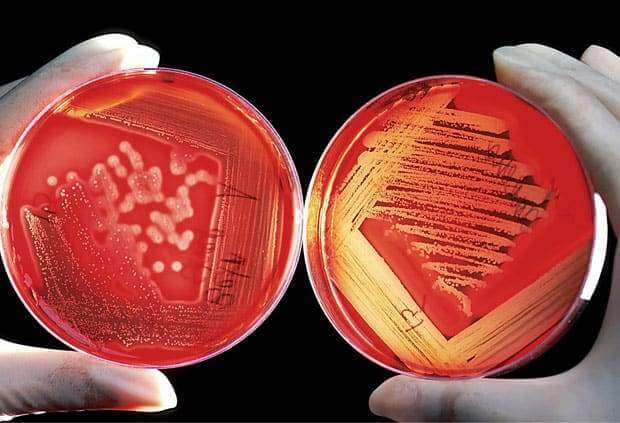Bacterial vaginosis (also known as simply "BV") is the medical term for a vaginal bacterial infection. Its symptoms are very similar to the signs of a yeast infection - an odorous discharge with a gray or white color, often accompanied by itching, burning, or irritation.
The good news is that most sexual lubricants won't increase your risk of bacterial vaginosis. Lubricants can help maintain a healthy vaginal ecosystem by preventing dryness, which leads to imbalances in the vaginal flora. However, there are some exceptions.
If your lubricant has any ingredients that promote a certain species of bacteria - or prevent another species' growth - it could allow for an overgrowth. Some of the most common examples include:
Acetates and Alcohols
Alcohols and ingredients with an “acetate” suffix can dry out the vagina. Some alcohol can also feed microorganisms. Most lubricants balance acetates with moisturizing ingredients, but if you're particularly prone to infections, you should consider avoiding lubes with these substances.
Oils
Oil-based lubricants are not designed for vaginal use (with one notable exception, Simply Slick), and oils can easily cause bacterial vaginosis or yeast infections. Nonoxynol-9 - This common spermicide can cause irritation, and some studies have linked it to bacterial and fungal overgrowth. It can dry out the vagina, which upsets the natural balance of the microorganisms.
Some Herbal Extracts

Most herbal ingredients are completely harmless, but some substances - guava bark, rosemary, and grapeseed, to name a few - have antibacterial properties. This is usually a good thing, but if you regularly experience bacterial infections or yeast infections, your lubricant could be throwing off your natural balance.
Some women are more susceptible to bacterial infections and yeast infections. If you've had more than one infection over the past year, consider a simple silicone or water-based lubricant with a limited set of ingredients. Avoid lubricants with propylene glycol until the infection is completely eliminated, as propylene glycol can cause painful irritation.
Any time you get a bacterial vaginosis infection, you should talk to your doctor right away to find a treatment option. Most infections are easily treatable with antibiotics, but it's important to get treatment right away to avoid serious health problems. When left untreated, BV can lead to pelvic inflammatory disease, fertility issues, and an increased risk of certain sexually transmitted diseases.
What Factors Can Increase My Risks of Bacterial Vaginal Infections?

According to the Centers for Disease Control and Prevention, the chances of contracting a BV infection increase substantially after douching. New partners (or multiple partners) can also increase risks by introducing new bacteria to the vaginal ecosystem. Any activity that causes dryness or excessive moisture could conceivably cause an infection.
Examples include swimming in chlorinated water, smoking tobacco, or using certain medications. Hormonal imbalances can also lead to a thinning of the vaginal membranes (atrophic vaginitis), leading to infections; this is most common after menopause or when taking hormonal treatments.
Because BV symptoms closely resemble the symptoms of a fungal yeast infection, your physician may need to perform a swab test to diagnose you. Once you receive your diagnosis, talk with your physician for more information regarding your risk factors.












